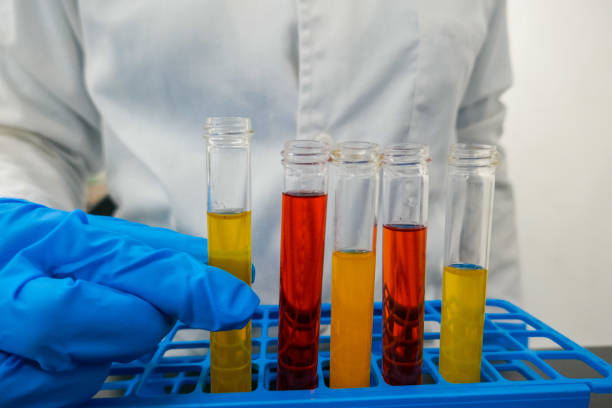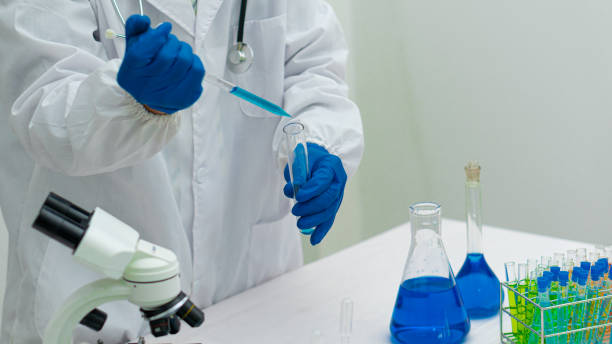A Step Forward in Treating Autoimmune Diseases with Stem Cell Therapy in Denver
Stem cell therapy in Denver, Colorado, is quickly becoming a viable and attractive option for treating an ever-increasing variety of debilitating and sometimes incurable conditions, as modern science continues to search for new and effective cures for many of the illnesses and diseases with which our world is faced.
Despite the controversial nature of stem cell research, significant improvements have been made in the treatment of autoimmune disorders, offering hope to millions of people who suffer from them. In this article, we will examine stem cell therapy, a potential advance in the treatment of autoimmune illnesses, as well as its potential benefits and hazards.
What are Autoimmune Conditions?
Autoimmune disorders are a type of chronic sickness in which the immune system of the body mistakenly destroys healthy cells, tissues, and organs instead of battling infectious infections. This causes inflammation and damage to the affected area and can impact numerous body parts, including the skin, joints, muscles, brain, and organs. Rheumatoid arthritis, type 1 diabetes, and lupus are among the most prevalent autoimmune disorders.
What Motivates Autoimmune Disorders?
Researchers believe hereditary factors, environmental triggers (such as exposure to specific chemicals), and lifestyle choices (such as smoking) can all contribute to the development of autoimmune illnesses. In addition, it is believed that many autoimmune illnesses are caused by an overactive immune system that does not recognize its own cells or tissues as "self," causing it to target them rather than battling infection.
Which Symptoms Exist?
Common symptoms of autoimmune illnesses include joint discomfort and swelling, exhaustion, fever, rash or other skin changes, weight loss or gain, hair loss or thinning hair, and trouble breathing or swallowing due to inflammation of the trachea or lungs. Depending on the ailment for which you have been diagnosed, other symptoms may be present.

Stem Cell Therapy: What is It?
Stem cell therapy is a regenerative and therapeutic medical treatment that employs the patient's own stem cells to assist in the repair or regeneration of damaged cells and tissues. In the case of autoimmune illnesses, stem cell therapy is employed to assist in the repair and restoration of disease-damaged healthy cells. This can aid in alleviating the symptoms of the autoimmune illness and may even aid in healing it.
What Types of Stem Cells are Used in Treatment?
Mesenchymal stem cells (MSCs) and hematopoietic stem cells are the two primary stem cell types employed in stem cell treatment for autoimmune disorders (HSCs). MSCs are a type of connective tissue stem cell present in bone marrow, adipose tissue, and umbilical cord tissue, and they are employed in therapy to reduce inflammation and enhance healing. HSCs are a type of cell present in bone marrow that is utilized to replenish healthy cells and stimulate the formation of healthy tissues.
What Method is Employed to Extract Stem Cells?
Apheresis, which involves the removal of harmful cells or components from a patient's bloodstream, is the most prevalent method of stem cell extraction. During this procedure, the stem cells are separated from the other blood components, collected, purified, and then reintroduced to the patient's body.
How Does Stem Cell Therapy Work?
Stem cell therapy has been shown to be a promising treatment for autoimmune illnesses. Adult stem cells can successfully cure autoimmune illnesses by stimulating the repair of damaged tissue, reducing inflammation, and restoring homeostasis due to their ability to specialize into diverse cell types and their ability to self-renew.
Adult stem cells are typically delivered intravenously, intramuscularly, or directly into the afflicted area for rapid and effective results. In certain instances, optimal outcomes require a series of injections administered over a protracted period.
Adult stem cell therapy combined with platelet-rich plasma (PRP) injections is an effective combo therapy. PRP expedites the recruitment and development of adult stem cells in the treated region. These therapies can provide long-lasting relief from the pain, incapacity, and weariness associated with autoimmunity if administered under the direction of a trained medical specialist.
Autoimmune Diseases and Stem Cell Therapy: Benefits
Stem cell therapy for autoimmune illnesses is a new regenerative medicine that has provided a unique means of treating a wide variety of immune-mediated disorders. This stem cell technique involves removing stem cells from the patient's adipose tissue and reinjecting them into damaged or inflamed tissues.
This regenerative strategy has the potential to alleviate the pain, inflammation, and exhaustion associated with these illnesses and to halt the course of the disease. Since the patient's cells are utilized, there is no risk of rejection or bad effects.
Stem Cell Therapy's Effectiveness in Treating Autoimmune Conditions
Stem cell therapy is gaining popularity as a treatment for autoimmune illnesses because of its ability to drastically reduce symptoms and restore the function of diseased or damaged tissue. Stem cell therapies could potentially become a safe and effective type of treatment for these illnesses, which have limited therapeutic alternatives and have garnered heightened interest.
With minimal tissue and organ damage, stem cells may still be able to perform their healing miracles. As a result, stem cell research may offer a completely new method for treating a variety of autoimmune disorders, with continuing research continuously revealing new details about its potential applications.
Stem Cell Therapy Negative Effects
Despite the fact that stem cell therapy has been lauded as a potential breakthrough in the treatment of chronic pain, it is essential to be aware of the potential hazards involved. Redness, swelling, and pain at the injection site, nausea, vomiting, and fever are some of the most frequent adverse effects of stem cell therapy.
Unfortunately, there is also the chance of more serious consequences, such as infections or even an allergic reaction to one's own implanted stem cells. Before starting stem cell therapy, it is vital to discuss any potential hazards with your doctor so that you are fully informed of any potential risks that may be part of your recovery.

Stem Cell Therapy Alternatives
Alternatives to stem cell therapy for autoimmune illnesses mostly depend on the nature of the illness and the severity of the symptoms. Immunosuppressive medications, biologics, and plasma exchange are typical therapies for autoimmune disorders. In addition, many patients choose lifestyle improvements, including food and activity changes, which can lower the severity of symptoms.
Autoimmune Diseases and Stem Cell Therapy: The Future
The future of stem cell therapy for autoimmune illnesses appears promising and offers hope to many people. As research into the efficacy of diverse stem cell types in treating a variety of autoimmune disorders progresses, it is expected that new treatment choices and improved outcomes will be developed.
Stem cell therapy is a relatively new method of medical treatment that gives hope to millions of patients suffering from autoimmune illnesses. Despite the dangers and adverse effects connected with the medication, its potential benefits make it an intriguing alternative for treating these illnesses. As stem cell research continues to improve, it is possible that we will see more treatments and better outcomes, providing more alternatives and hope for patients with autoimmune illnesses.
If you're interested to have more knowledge about this topic, feel free read this blog post from Denver Regenerative Medicine: https://denverregenerativemedicine.com/stem-cell-therapy-denver-a-step-forward-in-curing-autoimmune-diseases/

